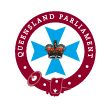Frequently asked questions - submissions to inquiries
Questions about publishing submissions and other evidence presented to parliamentary committees should be directed to the relevant committee secretary (see the 'Contacts' page of the relevant committee) in the first instance, or the First Clerk Assistant (Committees):
Phone: 07 3553 6600
Email: CommitteeOffice@parliament.qld.gov.au
Parliamentary committees provide opportunities for groups and individuals to contribute their views by making submissions. Submissions provide a rich source of facts and opinions to inform the work of committees.
Because parliamentary committees are covered by the rules of the Parliament, there are some restrictions on the disclosure and publication of submissions made to them that do not apply to submissions made to other bodies.
Committees of the Queensland Parliament abide by the same rules and enjoy the same protections and immunities (parliamentary privilege) as the Parliament itself. These protections are vital to a healthy democracy, ensuring that the Parliament, its Members and committees can work in an open and objective manner free from interference or improper influences. The protections afforded to committees extend to their ‘proceedings’ which include their private discussions and the evidence and documents presented to them.
There is a longstanding principle in Westminster parliaments that the proceedings of a parliamentary committee remain confidential unless the committee authorises their disclosure or publication.
In Queensland, committee proceedings are protected by Standing Orders 211 and 211A of the Standing Rules and Orders of the Legislative Assembly that govern the operations of the Parliament. For example, Standing Order 211(1) provides:
(1) The proceedings of a portfolio committee, the Committee of the Legislative Assembly Committee or a select committee or a subcommittee of any of those committees that is not open to the public or authorised to be published remains strictly confidential to the committee until the committee has reported those proceedings to the House or otherwise published the proceedings.
Individuals or groups who have made a submission to a parliamentary committee should not disclose the content of their submission to anyone except a member of the committee or the committee’s staff, unless the committee has authorised its disclosure. Disclosing includes publishing or releasing, and the prohibition on disclosure extends to the full document, parts of it, draft versions and synopses.
Unless authorised by the committee, groups or organisations should not disclose their submissions to anyone outside their group or organisation.
Once a committee has authorised that a submission may be disclosed or published, the submission may then be further published. This includes publishing on public websites and emailing copies to others.
If a submission attaches a document that has already been published or was previously in the public domain, such as an academic paper or government report, the disclosure of that document is not restricted by Standing Orders. However, the fact that the document was included with a submission should not be disclosed to others.
It is essential that committees are able to conduct their inquiries on behalf of Parliament without interference. When committees call for submissions, they are providing an opportunity for individuals and groups to contribute their own views and ideas honestly and openly.
It is crucial that committees manage the release of submissions and other evidence presented to them, ensuring that no individuals or groups are able to subvert or manipulate inquiry processes or place undue influence on others that could taint the submissions and other evidence committees receive.
Committees must also observe the sub judice rule (Standing Order 233) and ensure that submissions and other evidence they authorise for release do not jeopardise court proceedings.
Those who, without authority, release sub judice material submitted to a committee may be in contempt of Parliament and/or Court and be liable to be prosecuted.
Committees consider all submissions presented to them. Once a submission is received, a written acknowledgement is provided to the submitter either by email or letter.
After reading a submission and considering its relevance and content, the committee will decide whether to accept it and whether to publish it. This is the prerogative of the committee. In the vast majority of cases, submissions to parliamentary committees are accepted by committees and are authorised for publication in full on the committee's inquiry web page. This usually occurs within a relatively short length of time to facilitate public debate.
A committee may decide to not accept or to not publish a submission (or an attachment to a submission), for example if it, in the committee’s view:
- is irrelevant or does not address the terms of reference
- contains offensive language
- may be defamatory
- is sub judice or otherwise offends the Standing Orders
- is illegible.
Once the committee has published a submission, submitters are welcome to include a link from their website to their submission on the Parliament’s website.
Unauthorised publication or disclosure of a submission to a parliamentary committee is likely to breach the Standing Orders and impinge on the ability of the committee and the Parliament to carry out their work.
The publishers of unauthorised submissions may be liable to contempt of Parliament proceedings - a very serious offence. The penalties for contempt are determined by the Parliament.
Publishers of unauthorised submissions are not protected by parliamentary privilege and may also be liable to defamation proceedings.
Copies of the Standing Orders are available from the Table Office at Parliament House (ph 07 3553 6401), or from the Parliament’s website:
http://www.parliament.qld.gov.au/work-of-assembly/procedures
